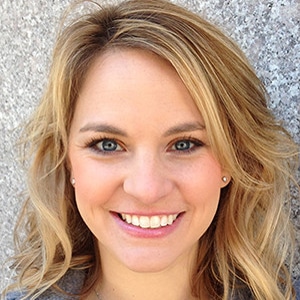Foundations of Play Therapy. Seminal Theories and Applications.
 Andrea McLeod, LCSW, RPT-S
Andrea McLeod, LCSW, RPT-S
Program Goals
This workshop is designed to provide a basic understanding of the historical development of play therapy as a legitimate therapeutic approach, describing the major theories of play therapy, and Axline’s foundational principles of child-centered play therapy. This workshop will then demonstrate how directive and nondirective approaches in play therapy can be used separately or in unison and participants will have experiential opportunities to practice several play therapy principles and approaches. In addition, information will be provided on how play therapy strategies can be utilized to promote and advance therapeutic goals when working with a range of behavioral problems and concerns.. Specifically, this program will:
- Define play therapy and provide curative aspects of play;
- Provide theoretical frameworks for the practice of play therapy;
- Discuss a contextual approach for providing play therapy;
- Differentiate between directive and nondirective play therapy approaches and discuss an integrative approach;
- Describe Axline’s basic principles of play therapy;
- Provide guidelines for the active observation, documentation, and processing of play metaphors, symbols, and activities;
- Offer a rationale for the integration of expressive therapies and cognitive behavioral strategies; Offer opportunities for consultation of specific clinical questions utilizing verbal, audio, or video case presentations.
Program Schedule
The daily schedule will consist of didactic presentations, experiential work, clinical case presentations, and group work to process specific clinical presentations of play therapy.
This course is presented in two full-days (six hours each day).
Schedule of Day 1
| 9:00- 09:30 | Introductions and needs assessment: Participant’s “wish list” |
| 09:30 -10:45 | Didactic information will be provided on the definition of play therapy, curative aspects of play, major theories of play therapy (psychoanalytic, humanistic, behavioral, developmental, client-centered, and mention of others such as Gestalt, filial, etc) |
| 10:45 -11:00 | Break |
| 11:00 -12:00 | Review of videotapes illustrating play therapy models Child-centered play therapy Developmental play therapy |
| 12:00 - 1:00 | LUNCH |
| 01:00 - 2:30 | Discussion of Axline’s principles of child-centered play; Experiential exercise |
| 02:30 - 2:45 | Break |
| 02:45 - 4:30 | Continuation of Axline’s basic principles of nondirective play therapy and the benefits of nondirective play |
Schedule of Day 2
| 09:00 – 10:30 | Directive play therapy techniques: When therapists set the agenda Experiential exercise |
| 10:30 -10:45 | Break |
| 10:45 -12:00 | Identifying play themes in assessment and treatment planning Discussion of gender, culture, and age issues |
| 12:00 - 1:00 | LUNCH |
| 01:00 - 02:30 | Setting up a play therapy office: Suggested toys for symbolic utilization |
| 02:30 - 2:45 | BREAK |
| 02:45 - 4:30 | Questions and answers |
References
Landreth, G. (1991). Play Therapy: The are of the relationship. Muncie, IN: Accelerated Development.
Schaefer, C.E., & Drewes, A.A. (Eds.). (2014). The therapeutic powers of play: 20 core agents of change. Hoboken, NJ: Wiley.
Drewes, A.A. (2011). Integrating plat therapy theories into practice. In A.A. Drewes, S.C. Bratton, & C. Schaefer (Eds.), Integrative play therapy. Hoboken, NJ: Wiley.
Gil, E. (2010). Working with children to heal interpersonal trauma: The powers of play.
New York: Guilford Press.
Course Objectives
By the end of the course participants will be able to:
- List two major theories of play therapy;
- List four of Axline’s basic principles of play therapy;
- Define play therapy and differentiate from generic play;
- Describe a rationale for the integration of play therapy and other expressive techniques with cognitive behavioral strategies;
- Describe three specific play therapy techniques to be utilized for assessment;
- Compile an example of how specific therapy goals can be advanced through the use of play therapy;
- List two benefits of play therapy;
- Describe two ways to involve the family in play therapy;
- Discuss the difference between directive and non directive play therapy approaches;
- Apply basic play therapy strategies to client sessions.
General Course Information
This course is designed to facilitate experiential work, group discussion, and processing of clinical material. Participants will have ample opportunity to discuss their specific needs and clinical questions. Participant feedback will be sought out throughout the two day class.
Instructor
Andrea Driggs McLeod is a full-time psychotherapist with Gil Institute for Trauma Recovery and Education. Previously she spent many years working in the DC public school system and specializes in working with young traumatized children and their families. Andrea is a Certified Child-Centered Play Therapist and a Registered Play Therapy Supervisor.
Phone: 513-312-8609
Email: amcleod@gilinstitute.com
Website:www.gilinstitute.com